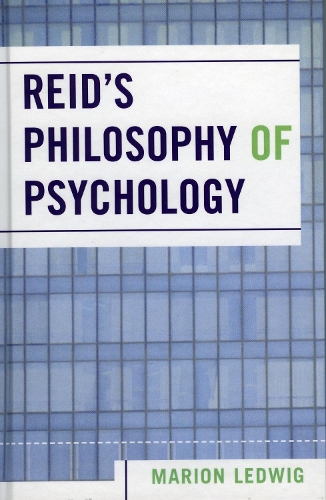
Reid's Philosophy of Psychology
(Paperback)
Publishing Details
Reid's Philosophy of Psychology
By (Author) Marion Ledwig
University Press of America
University Press of America
6th May 2005
United States
Classifications
General
Non Fiction
150.1
Physical Properties
Paperback
210
Width 147mm, Height 215mm, Spine 17mm
277g
Description
Thomas Reid's philosophy of psychology is remarkably up to date. Surprisingly, Reid's account of instincts doesn't diverge greatly from Tinbergen's more contemporary account. Reid's claims with regard to appetites and desires can be made relevant to current insights. Moreover, his theory of emotions can be related to current theories of the emotions, like Damasio's somatic marker hypothesis and Griffiths' distinction between basic and higher cognitive emotions. Reid's theory of causation has central features in common with Price's contemporary manipulability theory of causation. His rational principles of action seem to be rather out of date, yet, they can be made intelligible as part of a certain kind of protestant ethics. And Reid's account of freedom of action one could claim that it is common sense, which had its resurrection in Moore's philosophy.
Author Bio
Marion Ledwig is Post-Doctoral Researcher at the Royal Institute of Technology, Stockholm, Sweden. Ledwig earned her Ph.D. at the University of Konstanz. Since then she has been a visiting fellow at the University of Pittsburgh's Center for the Philosophy of Science and the Philosophy department at the University of Haifa. She has also served as a Visiting Assistant Professor at the University of California, Santa Cruz.
